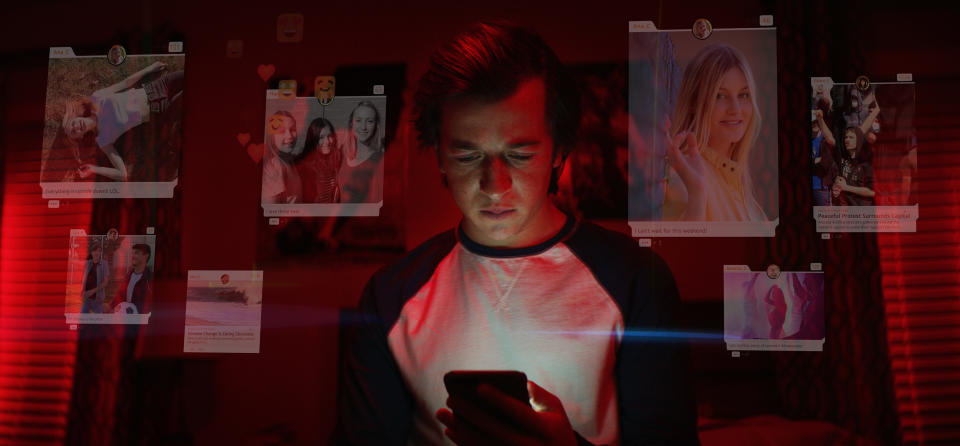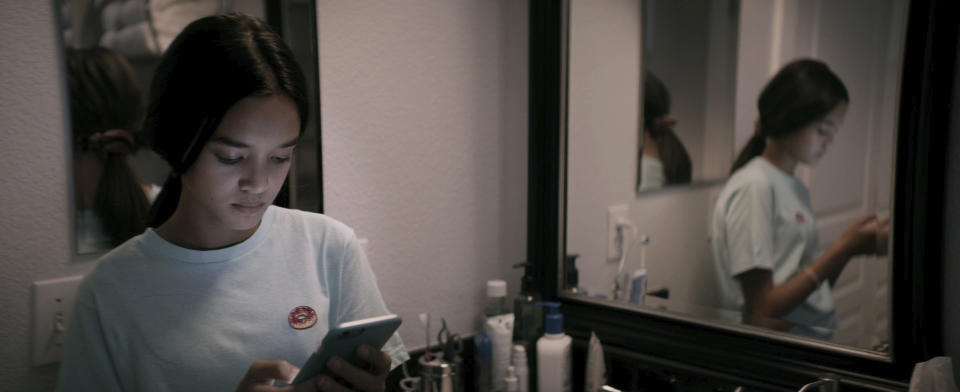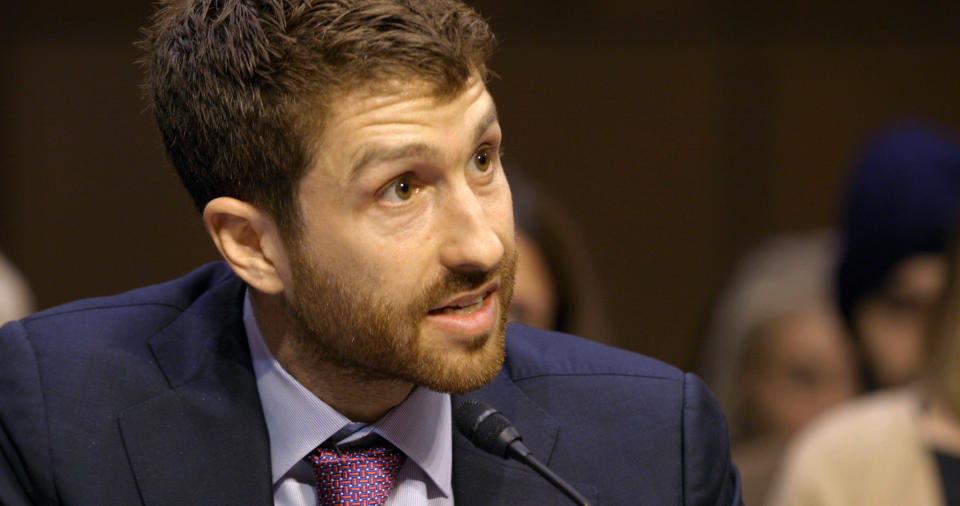Review: Put down that phone, urges doc 'The Social Dilemma'
“The Social Dilemma” is the first film you'll watch and immediately want to toss your smartphone into the garbage can. And then toss the garbage can through the window of a Facebook executive.
It's an eye-opening look into the way social media is designed to create addiction and manipulate our behavior, told by some of the very people who supervised the systems at places like Facebook, Google and Twitter.
Tim Kendall, a former president of Pinterest, admitted that years ago he couldn’t get off his phone even when he came home, despite having two young kids. “I am going to work during the day and building something that then I’m falling prey to,” he says in the film. “I couldn’t help myself.”
The documentary is a well paced, absorbing look at the deep costs of Big Tech — fake news, election security concerns, radicalization, polarization and much more. Only in trying to dramatize those costs does it slip up badly.
Director Jeff Orlowski interviews former tech execs, historians and social scientists but apparently doesn't trust them enough to tell the story. So he also employs a gimmicky family of five actors — two parents, three teens — to dramatize the lure of social media in a clunky way.
Worse, he also employs an actor — a weirdly cast Vincent Kartheiser of “Mad Men” fame — to pretend to act like the computer software, sending alluring phone alerts from a console to one of the teens and cuing up videos he knows will be clickbait, while ominous music plays.
“Yes, perfect,” Kartheiser purrs after sending a video of epic skateboard fails to the teen. “He’s primed for an ad!" Later: “Don't show him any more sports updates. He doesn't engage.”
But we know — from the very talking heads — that this is an algorithm with no agency other than its program. Why humanize code? And why humanize code by portraying it as a sleazy middle-aged man who acts like a mid-level officer in “Minority Report”?
The film then steps on itself. When one of the fake teens falls for a fake online conspiracy and attends a fake demonstration, it's juxtaposed against real footage of real violence and real demonstrations, muddying the water between fake and real — a terrible decision given what this film is about.
Orlowski would have done better interviewing real teens buffeted by social media and real people caught up in conspiracies. Insulting our intelligence about artificial intelligence is not the way to go.
The silly dramatizations mar an otherwise excellent documentary that shows how so many Silicon Valley leaders designed ways to keep us engaged online and that led to such things as Pizzagate, international destabilization,higher suicide rates in young people and a boom in depression.
The film reveals much more than why you go from Googling the best sofa one minute to finding sofa ads on your Facebook stream the next. That so much online seems free is part of the trap: It's our private data that's being sold. As Aza Raskin, former Firefox and Mozilla Lab worker says: “Advertisers are the customers. We’re the thing being sold.”
The film nicely delves into how algorithms that seek to maximize advertising revenue tap into psychology to keep us addicted to our screens. Did a friend just tag me? I got an alert! Hey, Facebook just invited me to an event. Those are all “positive intermittent reinforcements” and they keep us checking our phone for more, like a gambler hoping for a windfall at a Vegas slot machine.
Whether or not these techniques were actively employed, stumbled upon or just a byproduct of a user-engagement model is a little murky. The film offers all sides as to whether software makers consciously exploit human vulnerabilities: The guy who helped create the “like” button for Facebook says he wanted to spread love in the world but a former Facebook executive admits purposely creating dopamine-driven feedback loops.
If there is a hero here it is portrayed by Tristan Harris, an ex-Google executive who is now co-founder of the Center for Humane Technology and who hopes to change the system. He and critics like Jaron Lanier, author of “Ten Arguments for Deleting Your Social Media Accounts Right Now,” explain what the possible consequences are if we continue using our individual digital pacifiers — lots of cat videos, yes, and also civil war.
Stick around after the film is over to hear lots of recommendations from former tech leaders who built the mess we're in: They turn off their notifications. They delete many apps. They urge regulation. They don't let their kids use social media. Think about that.
“The Social Dilemma,” a Netflix release, is rated PG-13 for some thematic elements, disturbing/violent images and suggestive material. Running time: 94 minutes. Two and a half stars out of four.
___
MPAA Definition of PG-13: Parents strongly cautioned. Some material may be inappropriate for children under 13.
___
Online: https://www.netflix.com/title/81254224
___
Mark Kennedy is at http://twitter.com/KennedyTwits

 money
money 


